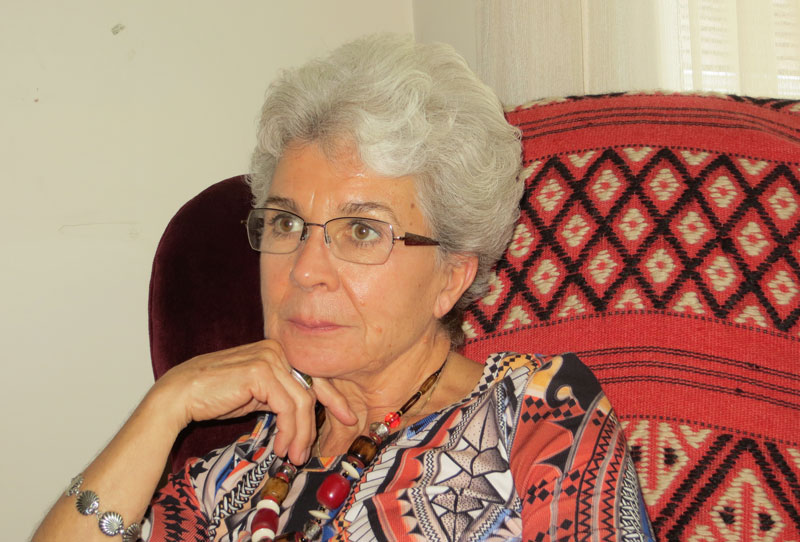
Natalie Kononenko, Kule Chair in Ukrainian Ethnography in the Faculty of Arts
"Ukrainians are very interested in their epic poetry," says Natalie Kononenko of her new book, Ukrainian Epic and Historical Song: Folklore in Context. "It's an emblem of nationhood."
Epic songs in England, France, Germany, and Greece, and performers like Homer, formed the basis of Western civilization, explains Kononenko. Ukrainian epic song can serve the same purpose for a diasporic community struggling to assert itself and its national right to independent statehood.
"A country that has a sense of itself as a nation has a historical claim to statehood, which is of course what Ukrainians wanted," she says. As a response to a need in the Ukrainian community for access to epic poetic texts, the project moves beyond mere academic significance to social meaning.
Born in Germany, raised in the United States and educated at Harvard University, Kononenko is a researcher of folklore, especially Ukrainian traditions, in Ukraine, Turkey, Kazakhstan, and now Canada. She is currently the Kule Chair in Ukrainian Ethnography in the Faculty of Arts, where her folklore courses are extremely popular and attract students of all ethnicities. Her books have been equally popular, and her earlier book about Ukrainian minstrels who performed epic songs won the American Association of Ukrainian Studies book award and the Kovaliv prize.
Ukrainian Epic and Historical Song: Folklore in Context was published in April 2019, with the official launch to be held on Wednesday, May 22. The book features a new translation of Ukrainian epic songs, known as dumy, offering at least one example of all known epic texts, plus selected historical, religious, and ritual poems that help put dumy in context.
Equally innovative is the fact that this book provides sociocultural information. Using recent historical scholarship about the lives of ordinary people - the folk - Kononenko explains the events chronicled in the epic. Earlier scholarly work that tried to connect these poems to famous people and important battles often proved unsatisfactory. Looking at the texts from the view of ordinary people, their actual composers and audiences, provides a level of meaning not previously achieved.
Just as folk epic and historical song spoke for and to the people, so Kononenko wants her work to be accessible to all - non-academics as well as scholars.
"I felt that the Ukrainian community needed this, both to better understand their own past and to help non-Ukrainians understand their struggles. I'm hoping I'll be talking to anybody who wants to know about epic song and how it works."
The launch of Kononenko's new book will be held at Chateau Louis in the Leland Room at 7 p.m. on Wednesday, May 22. Ukrainian Epic and Historical Song: Folklore in Context is published by the University of Toronto Press.
